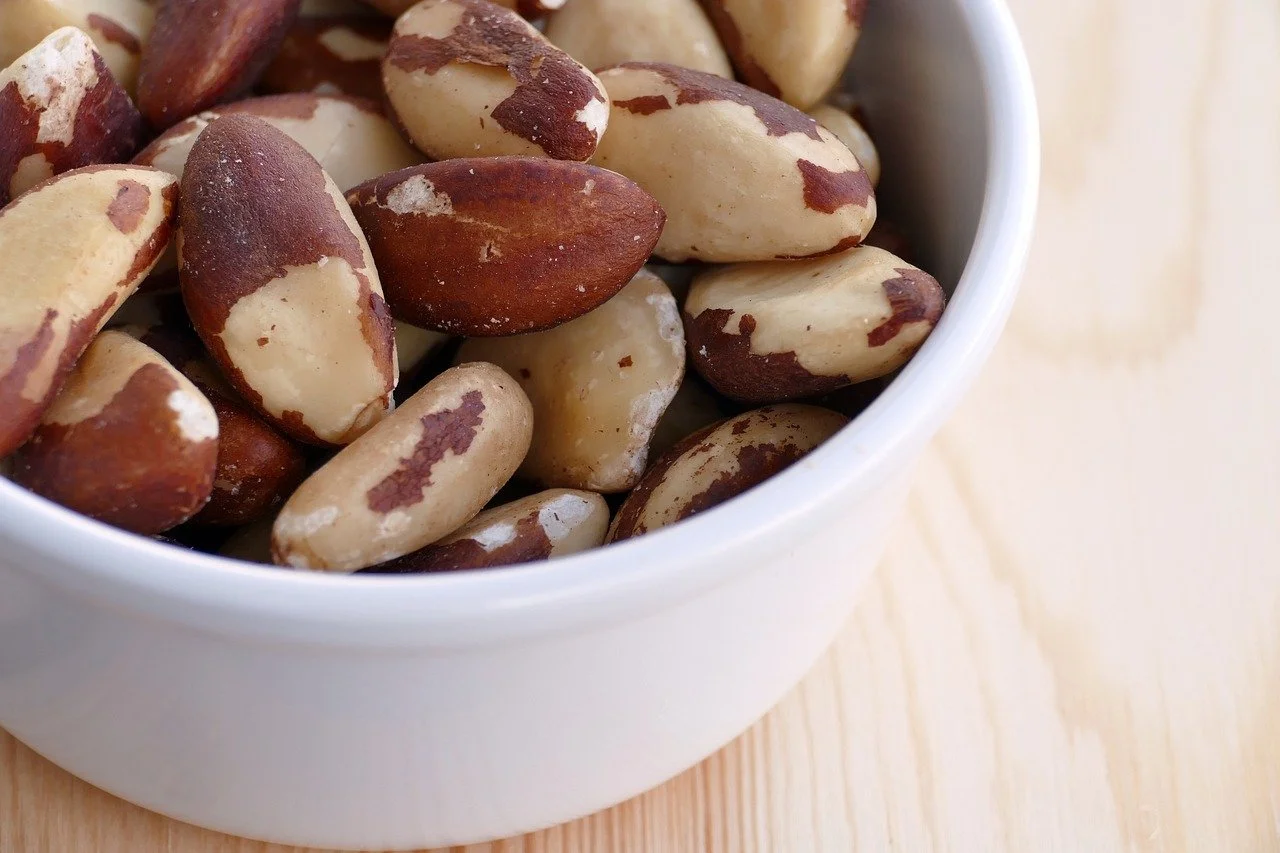Wellness Boosters: The A-to-Zinc Guide to Nutrients and Supplements
Having a strong immune system is the foundation for a healthy, happy life, and as we are discovering more and more, gut health is integral to a healthy immune system! Certain nutrients and supplements can be a great way to boost your immunity, but with so many options available, it’s difficult to know where to start.
Below are my recommendations for basic nutrients that have been shown to help improve natural immune health and fight off infection. These immune-supporting daily necessities can be found in a nutrient-rich diet, as well as botanical powerhouses and select supplements. (The Vervain Collective is my curated medicinary and most of these recommendations can be found in the apothecary and online store. If it’s something we don’t carry in the shop, high-quality brands can be found in my Fullscript dispensary.
Vitamin A
Vitamin A plays an important role in the body's immune system as it stimulates the production of white blood cells and strengthens the body’s epithelial tissues and mucous membranes, both of which serve as your first line of defense against pathogens. It is also an anti-inflammatory vitamin that can aid your antibodies' response to toxins, such as viruses.
Sources/dosage: Vitamin A can be found in liver, fish, eggs, and dairy products, as well as in leafy green vegetables, orange and yellow vegetables, tomato products, and fruits. In supplement form, vitamin A can be taken in doses of 25,000 IU per day (NOTE: high doses should be avoided during pregnancy).
Vitamin C
Vitamin C is another nutrient that’s essential for healthy immune function, as it supports the production and activity of important antibodies, which help to protect the body against infection and inflammation.
Sources/dosage: Great sources of vitamin C include berries, kiwifruit, and citrus fruits, as well as bell peppers. In supplement form, vitamin C can be taken “to bowel tolerance”in 500 mg increments throughout the day. The body uses more Vitamin C while it’s fighting off illness and everyone’s needs are different. “Bowel tolerance” means that if you get loose stools, back up to a smaller dose and find your body’s own individual needs.
Vitamin D
Vitamin D is crucial to the proper functioning of the immune system, as it helps the body to fight off infections. The recommended daily dosage of Vitamin D is 10-15,000 IU, however, it is best to get your levels tested before supplementing and again after six months of supplementation.
Sources: Natural sources of vitamin D include oily fish (including salmon, mackerel, and sardines), egg yolks, red meat, liver, and some mushrooms. NOTE: Vitamins D3 and K2 work together to benefit bone health, cardiovascular support, and healthy immune function. Adding vitamin K2 (like in this liquid form) helps move calcium to the bones to protect soft tissues, such as the arteries and kidneys, from calcification.
Vitamin K
Vitamin K not only helps regulate inflammation in the body, which is key for a healthy immune response, but it activates the proteins that remove undesirable cells from the body and generate new ones.
Sources: Vitamin K is found in leafy greens (like kale, collard greens, broccoli, spinach, cabbage, and lettuce), soybeans, avocado, nuts, and fruits.
Magnesium
Magnesium is an important mineral for immune health, as it improves the body’s white blood cells’ ability to identify and eliminate foreign pathogens. It also plays an important role in regulating inflammation and reducing stress and anxiety, which are crucial to maintaining a strong immune system.
Sources/dosage: Whole grains, legumes, nuts, avocados, tofu, seeds, and leafy green vegetables are all excellent sources of magnesium. In supplement form, magnesium should be taken to bowel tolerance (see Vit C above) but if you’re prone to loose stools/diarrhea already, a mixed or non-citrate form of Mg should be used orally, or you can skip the digestive tract altogether and rely on transdermal absorption with a spray or cream).
Matcha/GreenTeas and Black Teas
Green tea, black tea, and matcha contain powerful antioxidants that can help to prevent infection and promote overall health. These teas are excellent sources of quercetin and EGCG (epigallocatechin gallate), the latter of which serves as an ionophore for zinc, helping it get past the cell walls and into action.
Sources/dosage: The recommended daily dosage of these teas/matcha depends on the individual, but generally tea is a safe, easy, and enjoyable addition to daily consumption. Vervain offers an entire wall full of delicious options; Jasmine Pearl’s Lemon Ginger tea and Hot Eric Matcha Honey are some of my favorites!
Zinc
Zinc is important for overall immune function, in part by activating the enzymes that break down the proteins in viruses and bacteria, thus preventing their spread and helping the body to fight off infections. It also helps in cell growth, the repairing of DNA, and regulating inflammation.
Sources/dosage: Rich food sources of zinc are meat, fish, seafood, eggs, and dairy products, as well as high-protein plant foods like legumes, seeds, and nuts. Kale, spinach, mushrooms, and garlic also contain zinc. In supplement form, zinc can be taken in doses of 50 mg per day and used as a short-term immune boost for acute conditions as a lozenge or combined with Vit C or Vit C and Echinacea) and should be taken with meals.
Selenium
Selenium is an important mineral for the immune system as it helps to regulate inflammation, increases white blood cell count, and may also enhance the function of T-cells (which protect the body from infection by eliminating invading pathogens).
Sources/dosage: High amounts of selenium can be found in pork, beef, turkey, chicken, fish, shellfish, Brazil nuts, and eggs. Fruits and vegetables high in selenium include bananas, spinach, green peas, beans, potatoes, and onions. When supplementing, I recommend 200 mcg of selenium per day, which can be found in a quality multivitamin or a trace mineral supplement.
N-Acetyl Cysteine
N-acetyl cysteine is the supplement form of cysteine, which is an amino acid that can help to boost the immune system by increasing the production of glutathione, an antioxidant that helps to fight off infection.
Sources/dosage: Cysteine is found in protein-rich foods like chicken, turkey, other meats, lentils, oatmeal, sunflower seeds, garlic, yogurt, and eggs. The recommended daily dosage of N-acetyl cysteine is 500 to 1000 mg three times daily.
Glutathione
Glutathione is vital to the immune system’s proper functioning, as it helps to fight off infection and regulate inflammation. Specifically, it protects immune cells from damage while also exerting direct antiviral effects. It is considered the body’s main antioxidant and is found in every cell.
Sources/dosage: Foods high in glutathione include almonds, avocados, broccoli, cucumber, green beans, spinach, turmeric, and okra. The recommended daily dosage of Glutathione is 500 mg two to three times daily. It can nebulized or taken orally or intravenously.
Melatonin
Melatonin is a hormone that is known to help stimulate a suppressed immune system as well as bring the immune system under control during an acute inflammatory response. It is considered a clean antioxidant, as it provides immune cells with protection without triggering the production of free radicals in the body.
Sources/dosage: The recommended daily dosage of Melatonin is 3 to 10 mg, and should be taken 30 minutes to one hour before bed.
Bromelain
Bromelain is an enzyme that helps to promote the proper functioning of the digestive process and immune system while reducing inflammation in the body. It is also thought to reduce cough and nasal mucus.
Sources: Bromelain is found in the fruit, skin, juice, and stem of the pineapple. In supplement form, the recommended daily dosage of bromelain will depend on the individual and should be discussed with a healthcare professional.
Garlic
Garlic contains powerful antioxidants that can help fight off infection. It is believed to have antibacterial effects, and its high sulfur content helps with the absorption of zinc (another immune booster; see above).
Sources: Raw or aged garlic may be most effective at boosting the immune system, as cooking may decrease its therapeutic benefits. Supplements are available, but there are so many delicious ways to get garlic into your diet; I don’t recommend them much. Try making a big batch of Fire Cider or Fermented Garlic to add to your daily regimen.
Onions
Onions are known to strengthen the immune system through their antioxidant and anti-inflammatory effects. They are rich in probiotics, which help increase good gut bacteria and build immunity from viruses. Quercetin and selenium are also found in onions.
Sources/dosage: To gain the most benefits from the onion’s sulfuric compounds, eat onions raw rather than cooked or make a daily immune tonic such as Fire Cider (so many great recipes to choose from) to keep your immune system alert all throughout “cold and flu” season!




